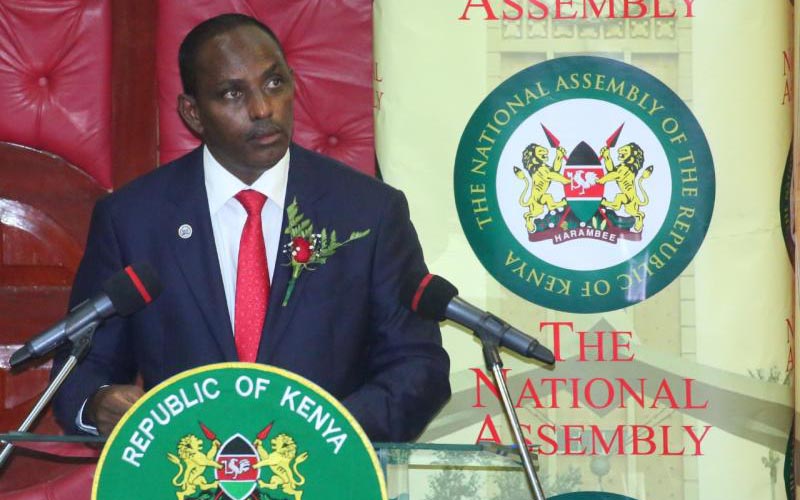Treasury CS Ukur Yatani presents the 2021/22 budget to the National Assembly on Thursday, June 10, 2021 [David Njaaga, Standard]
×
The Standard e-Paper
Join Thousands Daily

Treasury CS Ukur Yatani presents the 2021/22 budget to the National Assembly on Thursday, June 10, 2021 [David Njaaga, Standard]
Treasury Cabinet Secretary Mr Ukur Yatani today unveils a Sh3.3 trillion budget with a focus on grand projects and hefty send-off perks for politicians as ordinary Kenyans grapple with hunger pangs, expensive food and fuel and unemployment.